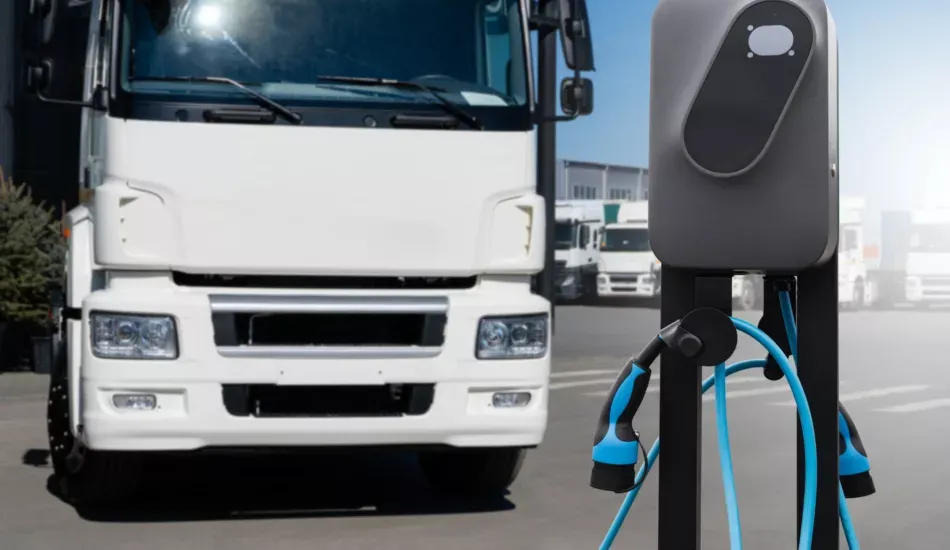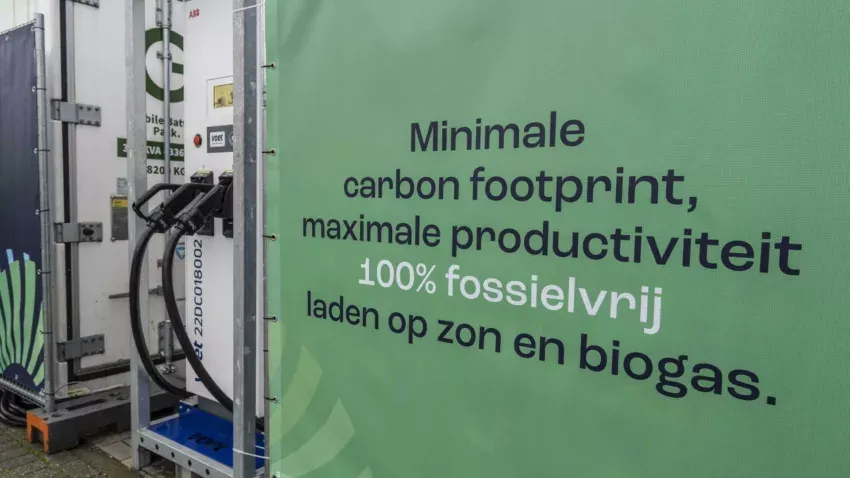A brand new charging station for e-trucks is to be built in Limburg. Trucks will be able to charge there fossil-free in the near future without depending on the already full electricity grid. A grant of 1.3 million euros has been awarded to the project.

There are more and more electric vans and trucks on the road. To run them, an extensive fast-charging network is needed. That's where entrepreneur Ferry Tap responds with Green Caravan. "Electric trucks are still at the beginning of the growth curve. For them to be a success, the charging infrastructure has to be in order. Without charging stations no e-trucks and vice versa. It's the old-fashioned chicken-and-egg story."
Fossil-Free Charging
This is why Tap is creating charging stations for e-trucks. The charging plaza he will build in Limburg covers six charging stations and a hundred truck parking spaces. To do so, he is working with partners A2 Truck Parking, Powercrumbs and Hedgehog Applications.
Fossil-free charging is the mission, he says. "When there is no sun or wind, fossil fuels are still used to generate electricity. Last year, half of the electricity was generated by natural gas and coal. Fortunately, the share of fossil fuels is decreasing rapidly, but it will be some time before all electricity is fossil-free. I want to make fossil-free charging possible now."
The future charging plaza will run mainly on solar energy. "The biggest component is solar. There's also a bit of battery storage in there for at night and the times when there's not much sun. We will generate the solar energy ourselves with panels on top of the parking lots. This also means that drivers can always stand in the shade and dry. In addition, the charging plaza runs on electricity made from biogas from sewers. So it really is a fossil-free solution."
Non-grid connected
The solution ensures that the charging plaza does not need to be connected to the power grid. "This is practical because the power grid is congested. Because of grid congestion, the request for a heavy connection needed for charging e-trucks can take years. But most importantly, the power coming from the grid is not necessarily fossil-free. In the cases of too little solar and wind, there is still a claim to natural gas and coal. So we don't want that."
Ferry Tap: "For trucks to be a success, the charging infrastructure has to be in place." | Credit: Green Caravan

Subsidy
.To realize the project in Limburg, 1.3 million euros in subsidy has been awarded. The grant, from a European transition program, accounts for about 50 percent of the required investments. A funding round has been launched for the remaining half. "The setup we will realize is quite innovative. To stimulate electric truck traffic, subsidies are being used for both the construction of charging plazas and the purchase of electric trucks. This happens at different levels, from regional to European level."
Operational
.Construction of the charging plaza should begin at the end of this year. Six months later, the first electric trucks should be at the charging stations. "Charging electric vehicles leads to a huge energy demand that will only increase in the coming years. It is important to minimize the CO2 emissions associated with generating power. With the upcoming laws and regulations, this will become increasingly important." Tap points to the CSRD. "That reporting requirement includes power consumption and associated emissions. Electric cars are also included in that. So it's going to matter more and more where and when you charge. That's another reason why I believe in fossil-free charging."
Source: change.inc